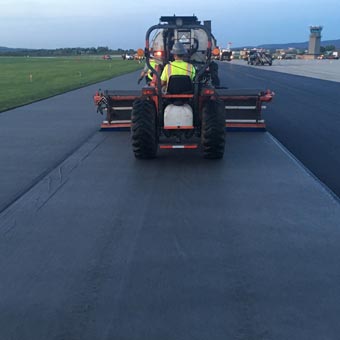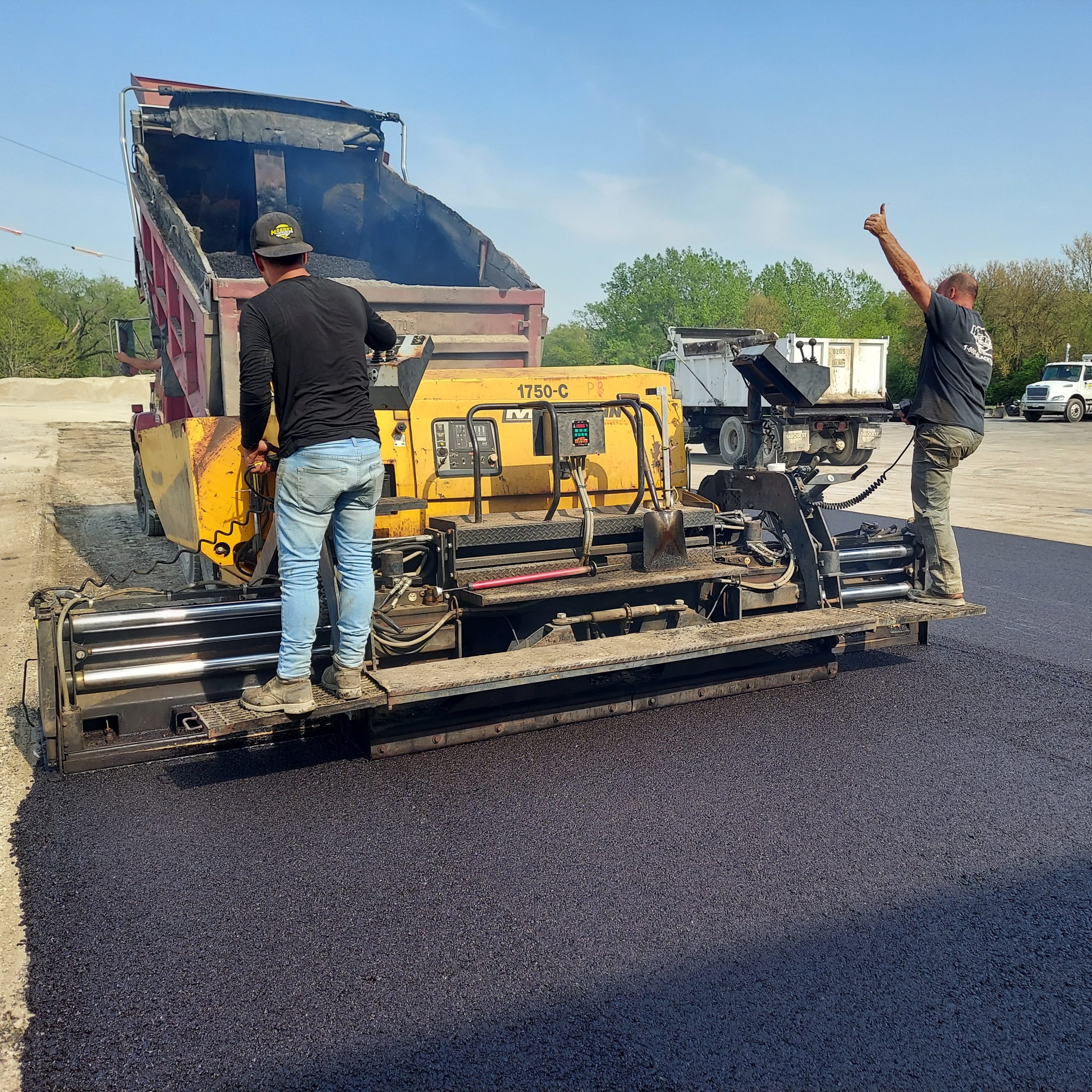Top-Rated Asphalt Paving Acworth GA: Get Professional Paving for Your Home or Business
Understanding the Various Kinds Of Asphalt Paving Available Today
In the world of building and facilities, a detailed understanding of the numerous types of asphalt paving is crucial for optimal task results. From the durable Warm Mix Asphalt, designed for high-traffic locations, to the environmentally aware Porous Asphalt that facilitates water monitoring, each kind presents distinct advantages tailored to certain requirements.

Warm Mix Asphalt
What makes warm mix asphalt a recommended choice for road construction and repair work? Hot mix asphalt (HMA) is favored for its sturdiness, adaptability, and performance under varying conditions. Composed of a mixture of aggregates and fluid asphalt cement, HMA is generated at heats, normally in between 300 ° F and 350 ° F (asphalt paving acworth ga). This high-temperature application permits optimal bonding and compaction, leading to a smooth, resilient surface that can endure heavy traffic lots and unfavorable climate.
HMA's ability to be tailored to particular task needs is an additional considerable advantage. Different gradations and formulations can be utilized to enhance properties such as flexibility, resistance to contortion, and durability. Furthermore, hot mix asphalt can be quickly mounted and available to website traffic, lessening disturbance during building.
Ecological factors to consider additionally contribute in the preference for HMA. The material is recyclable, and recovered asphalt sidewalk (RAP) can be recycled, promoting sustainability in roadway building and construction techniques. In general, hot mix asphalt attracts attention as a reliable option, successfully providing a resilient, high-performance surface area that fulfills the demands of contemporary infrastructure.
Cold Mix Asphalt
Cold mix asphalt is a flexible alternative to hot mix asphalt, especially fit for specific applications such as patching and surface treatments. This sort of asphalt is produced at ambient temperatures, permitting for easier handling and application without the need for substantial heating devices.
Commonly made up of asphalt emulsions or lessenings, cold mix asphalt can be mixed on-site or purchased pre-mixed. Its buildings enable it to bind well with existing pavement, making it an efficient remedy for fixing craters, fractures, and other surface flaws. It can be applied in a selection of weather condition problems, providing a sensible alternative for year-round maintenance.

Nonetheless, while cool mix asphalt is perfect for temporary fixes, it may not provide the very same longevity or sturdiness as hot mix asphalt under rush hour problems. As such, it is best utilized for low-traffic areas or as a short-lived remedy until more irreversible fixings can be executed.
Warm Mix Asphalt
While hot mix asphalt has long been the requirement for road building, warm mix asphalt (WMA) has actually become a cutting-edge alternative that balances efficiency with ecological considerations. WMA is produced at dramatically lower temperature levels-- normally between 215 ° F and 275 ° F-- compared to warm mix asphalt, which is heated to around 300 ° F. This decrease in temperature not only lowers energy usage however additionally decreases greenhouse gas discharges during manufacturing.
The innovation behind WMA entails using ingredients or techniques that enable much better workability at lower temperature levels. These can include chemical ingredients, foaming procedures, or a mix of both. Consequently, WMA preserves the necessary residential properties for sturdiness and performance while using a much more eco-friendly alternative.

Permeable Asphalt
Porous asphalt represents a forward-thinking method in pavement layout, prioritizing both functionality and environmental sustainability. This ingenious material is especially engineered to allow water to penetrate via its surface area, properly lowering overflow and promoting groundwater recharge. As an outcome, porous asphalt is an excellent option for areas prone to flooding or where stormwater management is essential.
The make-up of permeable asphalt differs from conventional asphalt, including a greater percent of gaps that assist in water drainage. This property not just minimizes surface area water buildup but additionally helps reduce issues like hydroplaning and boosts car grip throughout wet problems. asphalt paving acworth ga. Additionally, permeable asphalt can add to urban warmth island reduction, as it enables greater dissipation and cooling results in urban settings
In terms of installment, permeable asphalt requires careful factor to consider of underlying water drainage systems to ensure optimum efficiency. Maintenance commonly entails routine examinations and cleaning up to stop clogging from particles, which can impair its permeability. In general, permeable asphalt works as a lasting paving service that aligns wikipedia reference with modern ecological objectives, making it an increasingly popular selection for both public and private jobs.
Rubberized Asphalt
Rubberized asphalt is an innovative paving material that incorporates recycled rubber, usually sourced from scrap tires, into the asphalt mix. This cutting-edge approach not just boosts the efficiency of typical asphalt try this yet likewise promotes environmental sustainability by reusing waste products. The enhancement of rubber improves the adaptability and sturdiness of the pavement, making it resistant to fracturing and contortion under varying temperature level conditions.
Among the considerable advantages of rubberized asphalt is its ability to decrease environmental pollution. The rubber fragments take in audio, causing quieter roadways, which is particularly advantageous in urban areas. In addition, this kind of asphalt provides enhanced skid resistance, improving security for vehicles.
Rubberized asphalt also adds to prolonging the lifespan of roadway surface areas, causing lowered maintenance costs over time. This long life is specifically beneficial for high-traffic locations where wear and tear are accelerated. In addition, its resistance to moisture infiltration helps lessen the threat of water damages, additionally improving resilience.
Final Thought
In summary, the variety of asphalt paving kinds-- Warm Mix Asphalt, Cold Mix Asphalt, Cozy Mix Asphalt, Porous Asphalt, and Rubberized Asphalt-- each accomplish distinct features that deal with diverse building and construction and upkeep requirements. These alternatives not only boost road quality yet additionally add to sustainability through minimized energy usage and enhanced water management. Comprehending these differences is important for picking the ideal asphalt type, ultimately making sure reliable and efficient leading remedies in various settings.
From the robust Warm Mix Asphalt, made for high-traffic locations, to the eco conscious Porous Asphalt that helps with water monitoring, each kind presents distinctive advantages tailored to specific demands.Generally made up of asphalt solutions or lowerings, chilly mix asphalt can be mixed on-site or acquired pre-mixed.While hot mix asphalt has long been the standard for roadway construction, cozy mix asphalt (WMA) has emerged as an ingenious alternative that balances performance with ecological factors to consider.Rubberized asphalt is an innovative paving product that incorporates recycled rubber, typically sourced from scrap tires, right into the asphalt mix.In recap, the range of asphalt paving types-- Warm Mix Asphalt, Cold Mix Asphalt, Cozy Mix Asphalt, Porous Asphalt, and Rubberized Asphalt-- each meet distinctive functions that cater to diverse building and construction and maintenance demands.